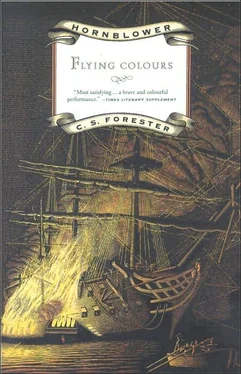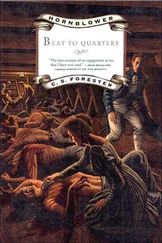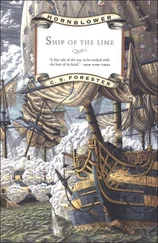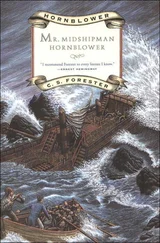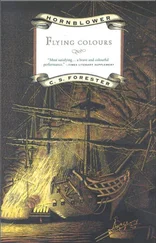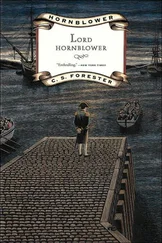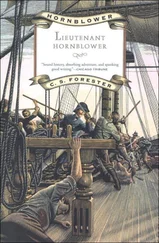Cecil Forester - Flying Colours
Здесь есть возможность читать онлайн «Cecil Forester - Flying Colours» весь текст электронной книги совершенно бесплатно (целиком полную версию без сокращений). В некоторых случаях можно слушать аудио, скачать через торрент в формате fb2 и присутствует краткое содержание. Год выпуска: 1989, ISBN: 1989, Издательство: Back Bay Books, Жанр: Исторические приключения, Путешествия и география, Морские приключения, на английском языке. Описание произведения, (предисловие) а так же отзывы посетителей доступны на портале библиотеки ЛибКат.
- Название:Flying Colours
- Автор:
- Издательство:Back Bay Books
- Жанр:
- Год:1989
- ISBN:0316289396
- Рейтинг книги:5 / 5. Голосов: 1
-
Избранное:Добавить в избранное
- Отзывы:
-
Ваша оценка:
- 100
- 1
- 2
- 3
- 4
- 5
Flying Colours: краткое содержание, описание и аннотация
Предлагаем к чтению аннотацию, описание, краткое содержание или предисловие (зависит от того, что написал сам автор книги «Flying Colours»). Если вы не нашли необходимую информацию о книге — напишите в комментариях, мы постараемся отыскать её.
Flying Colours — читать онлайн бесплатно полную книгу (весь текст) целиком
Ниже представлен текст книги, разбитый по страницам. Система сохранения места последней прочитанной страницы, позволяет с удобством читать онлайн бесплатно книгу «Flying Colours», без необходимости каждый раз заново искать на чём Вы остановились. Поставьте закладку, и сможете в любой момент перейти на страницу, на которой закончили чтение.
Интервал:
Закладка:
Progress was slow, and the stage was a long one. Only rarely before had they travelled after dark, but here it seemed that night would overtake them long before they could reach the next town. Bush and Brown were talking quite excitedly about this remarkable mishap—Hornblower heard their cackle without noticing it, as a man long resident beside a waterfall no longer hears the noise of the fall. The darkness which was engulfing them was premature. Low black clouds covered the whole sky, and the note of the wind in the trees carried with it something of menace. Even Hornblower noted that, nor was it long before he noticed something else, that the rain beating upon his face was changing to sleet, and then from sleet to snow; he felt the big flakes upon his lips, and tasted them with his tongue. The gendarme who lit the lamps beside the driver’s box revealed to them through the windows the front of his cloak caked thick with snow, shining faintly in the feeble light of the lamp. Soon the sound of the horses’ feet was muffled and dull, the wheels could hardly be heard, and the pace of the coach diminished still further as it ploughed through the snow piling in the road. Hornblower could hear the coachman using his whip mercilessly upon his weary animals—they were heading straight into the piercing wind, and were inclined to take every opportunity to flinch away from it.
Hornblower turned back from the window to his subordinates inside the coach—the faint light which the glass front panel allowed to enter from the lamps was no more than enough to enable him just to make out their shadowy forms. Bush was lying huddled under all his blankets; Brown was clutching his cloak round him, and Hornblower for the first time noticed the bitter cold. He shut the coach window without a word, resigning himself to the leathery stuffiness of the interior. His dazed melancholy was leaving him without his being aware of it.
“God help sailors,” he said cheerfully, “on a night like this.”
That drew a laugh from the others in the darkness—Hornblower just caught the note of pleased surprise in it which told him that they had noticed and regretted the black mood which had gripped him during the last few days, and were pleased with this first sign of his recovery. Resentfully he asked himself what they expected of him. They did not know, as he did, that death awaited him and Bush in Paris. What was the use of thinking and worrying, guarded as they were by Caillard and six gendarmes? With Bush a hopeless cripple, what chance was there of escape? They did not know that Hornblower had put aside all thought of escaping by himself. If by a miracle he had succeeded, what would they think of him in England when he arrived there with the news that he had left his lieutenant to die? They might sympathize with him, pity him, understand his motive—he hated the thought of any of that; better to face a firing party at Bush’s side, never to see Lady Barbara again, never to see his child. And better to spend his last few days in apathy than in fretting. Yet the present circumstances, so different from the monotony of the rest of the journey, had stimulated him. He laughed and chatted with the others as he had not done since they had left Beziers.
The coach crawled on through the darkness with the wind shrieking overhead. Already the windows on one side were opaque with the snow which was plastered upon them—there was not warmth enough within the coach to melt it. More than once the coach halted, and Hornblower, putting his head out, saw that they were having to clear the horses’ hoofs of the snow balled into ice under their shoes.
“If we’re more than two miles from the next post house,” he announced, sitting back again, “we won’t reach it until next week.”
Now they must have topped a small rise, for the horses were moving quicker, almost trotting, with the coach swaying and lurching over the inequalities of the road. Suddenly from outside they heard an explosion of shouts and yells.
“He, hé, hé!”
The coach swung round without warning, lurching frightfully, and came to a halt leaning perilously over to one side. Hornblower sprang to the window and looked out. The coach was poised perilously on the bank of a river; Hornblower could see the black water sliding along almost under his nose. Two yards away a small rowing boat, moored to a post, swayed about under the influence of wind and stream. Otherwise there was nothing to be seen in the blackness. Some of the gendarmes had run to the coach horses’ heads; the animals were plunging and rearing in their fright at the sudden apparition of the river before them.
Somehow in the darkness the coach must have got off the road and gone down some side track leading to the river here; the coachman had reined his horses round only a fraction of a second before disaster threatened. Caillard was sitting his horse blaring sarcasms at the others.
“A fine coachman you are, God knows. Why didn’t you drive straight into the river and save me the trouble of reporting you to the sous-chef of the administration? Come along, you men. Do you want to stay here all night? Get the coach back on the road, you fools.”
The snow came driving down in the darkness, the hot lamps sizzling continuously as the flakes lighted on them. The coachman got his horses under control again, the gendarmes stood back, and the whip cracked. The horses plunged and slipped, pawing for a footing, and the coach trembled without stirring from the spot.
“Come along, now!” shouted Caillard. “Sergeant, and you, Pellaton, take the horses. You other men get to the wheels! Now, altogether. Heave! Heave!”
The coach lurched a scant yard before halting again. Caillard cursed wildly.
“If the gentlemen in the coach would descend and help,” suggested one of the gendarmes, “it would be better.”
“They can, unless they would rather spend the night in the snow,” said Caillard; he did not condescend to address Hornblower directly. For a moment Hornblower thought of telling him that he would see him damned first—there would be some satisfaction in that—but on the other hand he did not want to condemn Bush to a night of discomfort merely for an intangible self-gratification.
“Come on, Brown,” he said, swallowing his resentment, and he opened the door and they jumped down into the snow.
Even with the coach thus lightened, and with five men straining at the spokes of the wheels, they could make no progress. The snow had piled up against the steep descent to the river, and the exhausted horses plunged uselessly in the deep mass.
“God, what a set of useless cripples!” raved Caillard. “Coachman, how far is it to Nevers?”
“Six kilometres, sir.”
“You mean you think it’s six kilometres. Ten minutes ago you thought you were on the right road and you were not. Sergeant, ride into Nevers for help. Find the mayor, and bring every able-bodied man in the name of the Emperor. You, Ramel, ride with the sergeant as far as the high road, and wait there until he returns. Otherwise they’ll never find us. Go on, sergeant, what are you waiting for? And you others, tether your horses and put your cloaks on their backs. You can keep warm digging the snow away from that bank. Coachman, come off that box and help them.”
The night was incredibly dark. Two yards from the carriage lamps nothing was visible at all, and with the wind whistling by they could not hear, as they stood by the coach, the movements of the men in the snow. Hornblower stamped about beside the coach and flogged himself with his arms to get his circulation back. Yet this snow and this icy wind were strangely refreshing. He felt no desire at the moment for the cramped stuffiness of the coach. And as he swung his arms an idea came to him, which checked him suddenly in his movements, until, ridiculously afraid of his thoughts being guessed, he went on stamping and swinging more industriously than ever. The blood was running hot under his skin now, as it always did when he was making plans—when he had outmanoeuvred the Natividad, for instance, and when he had saved the Pluto in the storm off Cape Creux.
Читать дальшеИнтервал:
Закладка:
Похожие книги на «Flying Colours»
Представляем Вашему вниманию похожие книги на «Flying Colours» списком для выбора. Мы отобрали схожую по названию и смыслу литературу в надежде предоставить читателям больше вариантов отыскать новые, интересные, ещё непрочитанные произведения.
Обсуждение, отзывы о книге «Flying Colours» и просто собственные мнения читателей. Оставьте ваши комментарии, напишите, что Вы думаете о произведении, его смысле или главных героях. Укажите что конкретно понравилось, а что нет, и почему Вы так считаете.
